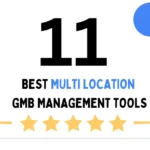If you’re like most Indian car owners, you probably dread your annual car insurance premium. Whether you’re renewing or shopping for a new policy, car insurance premiums often seem higher than they should be. But here’s the harsh truth: many Indians are unknowingly overpaying for their car insurance by a significant amount.
In this article, let’s explore why this happens and share seven actionable strategies you can use to save money on your car insurance. Plus, let’s uncover some common myths and misconceptions that often lead to overpayment. Let’s dive in!
Why do most Indians overpay for car insurance?
Car insurance is a mandatory requirement in India, but that doesn’t mean it has to be expensive. Many vehicle owners simply accept whatever premium they’re offered, without realising there are ways to bring that cost down.
Overpaying for car insurance is often the result of a few factors, such as a lack of knowledge, reliance on traditional insurers, or just being unaware of discounts and policy options. Fortunately, with the right information, you can save hundreds or even thousands on your premiums each year.
7 money-saving strategies to reduce your car insurance premium
Here are seven practical strategies to help you stop overpaying for car insurance:
1. Compare quotes online
The most effective way to ensure you’re getting the best deal is to compare car insurance policies from different insurers. Many people tend to stick with the same provider year after year without checking whether a better offer is available. Shopping around can give you access to cheaper premiums for the same or even better coverage.
2. Don’t overinsure
It’s common to insure a car for more than its actual market value, thinking you’re getting better coverage. However, this only increases your premium unnecessarily. Instead, consider the Insured Declared Value (IDV) of your car, which is its current market value after depreciation. This will give you more accurate coverage and ensure you’re not overpaying for insurance.
Be mindful of not overestimating your car’s value. If you’re unsure, get your car evaluated by an expert or insurer to ensure you’re not paying for more coverage than you need.
3. Increase your voluntary deductible
A deductible is the amount you pay out of pocket before your insurance kicks in. Increasing your voluntary deductible (the portion you pay in the event of a claim) can lower your premium significantly. However, make sure the higher deductible is an amount you can comfortably afford to pay in case of an accident.
Before increasing your deductible, check your policy terms and ensure that the increase in your deductible will result in an affordable premium reduction.
4. Keep your claim-free record intact
Most insurers offer discounts on premiums for drivers with a clean claims history, often called a No-Claim Bonus (NCB). If you haven’t claimed in the past year, you’re eligible for a discount on your premium for the next year. Over time, this bonus can add up to a significant saving.
If you haven’t made any claims, ensure you claim your NCB when renewing your policy. Many insurance providers offer NCBs as part of their policy renewal process.
5. Opt for third-party insurance if you don’t need comprehensive cover
While comprehensive insurance provides extensive protection, including coverage for damage to your car, third-party insurance is a cheaper option that covers only damages to other people’s vehicles or property.
If your car is older, has a lower market value, or you don’t drive frequently, third-party insurance could be a cost-effective alternative. Keep in mind that comprehensive insurance is essential if you have a newer or high-value car that you need to protect against accidents, theft, or natural disasters.
6. Consider the add-ons carefully
Add-ons like zero depreciation, roadside assistance, engine protection, and key replacement are often marketed as essential to give you the most comprehensive protection. However, not all add-ons are necessary, especially if you’re on a tight budget.
Carefully evaluate which add-ons you truly need based on your car’s age, usage, and the risks you’re most concerned about. For example, if your car already has roadside assistance through another service, you don’t need to pay extra for this feature in your insurance.
7. Look for discounts and offers
Many insurance providers offer discounts based on factors such as the installation of anti-theft devices, secure parking, or your driving history. If you’ve taken any defensive driving courses, you might be eligible for further discounts.
Common myths that lead to overpaying for car insurance
Myth 1: You should always stick with the same insurer.
Staying loyal to one insurer doesn’t always guarantee the best rates. In fact, many insurers offer discounts to new customers that are not available to long-term policyholders. By shopping around, you may find a more affordable option.
Myth 2: Car insurance premiums are the same everywhere.
Not all insurers offer the same premiums for the same coverage. Car insurance rates vary depending on factors like the provider’s pricing structure, your car’s make and model, and even your location.
Myth 3: A lower premium means less coverage.
A low premium doesn’t necessarily mean you’re sacrificing coverage. By comparing quotes, you can find providers that offer affordable premiums with sufficient coverage, especially if you consider things like deductibles and add-ons.
Myth 4: The more expensive the policy, the better the coverage.
While a higher premium often comes with better coverage, it’s not always the case. It’s important to understand the coverage details and adjust your policy to match your needs without overpaying for unnecessary add-ons or extras.
Conclusion
Overpaying for car insurance is a common mistake, but with the right knowledge and a little effort, you can easily save money without compromising on coverage. By comparing quotes online, reviewing your policy regularly, and avoiding unnecessary add-ons, you can ensure you’re not spending more than necessary on your car insurance.











